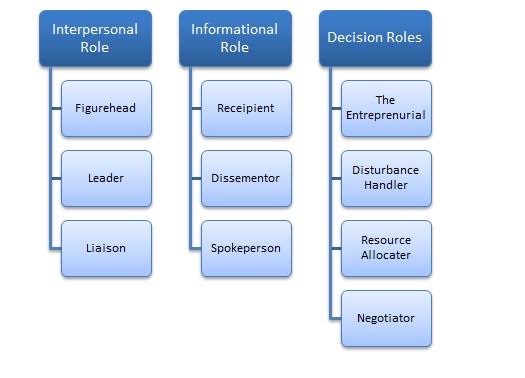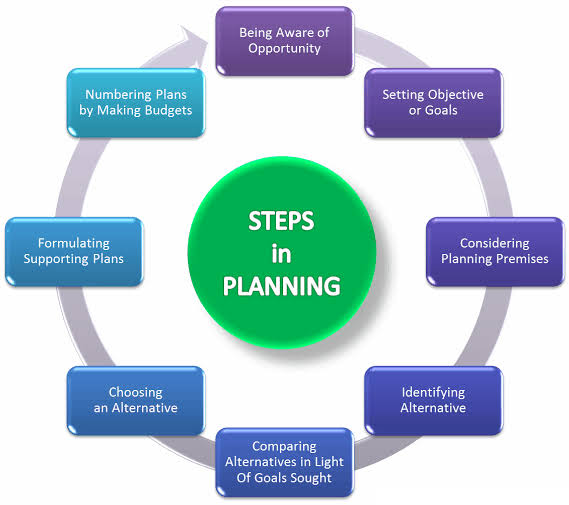Fundamentals of management
Assignment on – Fundamentals of management
Submitted to – Dr. Sushree Sangita Sahoo
Submitted by – kiran kumar jena
Questions
A.1.Define Management.
Ans :Management is a social and dynamic process of doing business. Management is the process of reaching organizational goals by working with people and other organizational resources. It is a process or series of continuing and related activities. It concentrates on reaching organizational goals. An organization achieves its goals by working with people and using organizational resources correctly.
 |
- Management is the coordination and administration of tasks to achieve a goal. Such administration activities include setting the organization's strategy and coordinating the efforts of staff to accomplish these objectives through the application of available resources.
2. What are the different essential roles of a manager ?
Ans: Rolls of manager
Interpersonal Category
The managerial roles in this category involve providing information and ideas.
1. Figurehead – As a manager, you have social, ceremonial and legal responsibilities. You're expected to be a source of inspiration. People look up to you as a person with authority, and as a figurehead.
2.Leader – This is where you provide leadership for your team, your department or perhaps your entire organization; and it's where you manage the performance and responsibilities of everyone in the group.
3.Liaison – Managers must communicate with internal and external contacts. You need to be able to network effectively on behalf of your organization.
Informational Category
The managerial roles in this category involve processing information.
1. Monitor – In this role, you regularly seek out information related to your organization and industry, looking for relevant changes in the environment. You also monitor your team, in terms of both their productivity, and their well-being.
2. Disseminator – This is where you communicate potentially useful information to your colleagues and your team.
3. Spokesperson – Managers represent and speak for their organization. In this role, you're responsible for transmitting information about your organization and its goals to the people outside it.
Decisional Category
The managerial roles in this category involve using information.
1. Entrepreneur – As a manager, you create and control change within the organization. This means solving problems, generating new ideas, and implementing them.
2. Disturbance Handler – When an organization or team hits an unexpected roadblock, it's the manager who must take charge. You also need to help mediate disputes within it.
3.Resource Allocator – You'll also need to determine where organisational resources are best applied. This involves allocating funding, as well as assigning staff and other organisational resources.
4. Negotiator – You may be needed to take part in, and direct, important negotiations within your team, department, or organization.
4. What are the different functions of management ?
Ans: There are basically six management concepts that allow any organizations manager to handle the tactical planned and set decisions. The six basic functions of the manager are just to have a controlled paln over the preventive measure.
1. Planning
2. Organizing
3. Staffing
4. Directing
5. Coordinating
6. Controlling
1. PLANNING :
Planning is the first tool of the four functions in the managerial task. The difference between a successful and unsuccessful manager lies within the planning procedure. Planning is the logical thinking through the goals and making the decision as to what needs to be accomplished in order to reach the organisation' objectives.
Managers use this process to plan for the future, like a blueprint to forsee problems, decide on the actions to evade difficult issues and to beat the competition.
2.ORGANIZING :
The second function of the management is getting prepared, getting organized. Manager must organize all its resources well before in hand to put into practice the course of action to decide that has been planned in the base function. Through this process, manager will now determine the inside directorial configuration; establish and maintain relationships, and also assign required resources.
3. STAFFING : The third function of manager is staffing. After the organisational functions are done , he may decide to beef up his staffing by recruiting, selecting, training, and devloping employees. A manager in a large organisation often works with the company's human resources department to accomplish this goal.
4. DIRECTING :
It involves the implementation of plans by mobilizing individuals and group efforts through motivation, communication, leadership and supervision. Directing may be defined as the
process of activating the efforts of employees towards the achievement of organizational objectives.
5. CO-ORDINATING : It is one of the most important functions of management. It is essential to channelize the activities of various individual in the organization for the achievement of common goals. Every department is given a target to be achieved and they should concentrate only on their
work and should not bother about the work of other organization.
6. CONTROLLING: It is the process of regulating the ongoing activities of the organization to ensure that they are in conformity with the established plans and produce the desired results. Through the controlling functions, management can keep the organization towards its chosen track.













Comments
Post a Comment